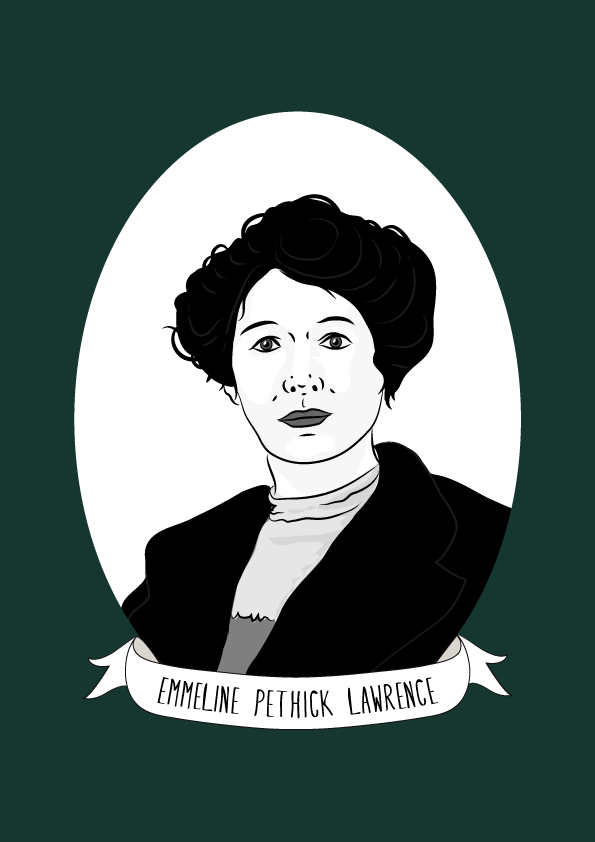This year marks the centenary of some women gaining the right to vote in the UK. To celebrate this, I have a special #suffrage100 #zine for sale on Etsy! http://etsy.me/2EtCJ2K
Emmeline Pethick-Lawrence was a British women’s rights activist.
From a young age, she began to rebel and was accused as being “a corrupting influence on other children”. She became involved in social causes from 1891, when she ran a club for working-class girls at the West London Methodist mission. She became a socialist, and together with Mary Neal she formed the Espérance Club which supported young women in founding a co-operative dressmaking business. Together, Pethick-Lawrence and Neal then went on to establish a hostel for working girl’s holidays.
Socialism was so important to Pethick-Lawrence that she refused to marry until her partner agreed to share her beliefs. They combined their surnames upon marriage and would retain their individual finances and autonomy throughout their marriage.
In 1906, Pethick-Lawrence joined the Women’s Social and Political Union (WSPU) as treasurer. Not long after joining, she was arrested for the first time while attempting to speak in the lobby of the House of Commons. She served six months in jail. A year later, Pethick-Lawrence and her husband founded the journal Votes for Women and opened their home to the members of the WSPU so that it could be used as the office for the organisation.
In 1912, the WSPU began to adopt more militant tactics, which Pethick-Lawrence disagreed with. Both she and her husband were arrested following a campaign of window smashing and sued for the cost of the damage. They both went on hunger strike while imprisoned, and were forcibly fed. Upon her release, Pethick-Lawrence spoke about the dangers of using criminal damage to get the WSPU’s point across. After tactics escalated to include arson, she objected and was barred from the organisation.
Pethick-Lawrence continued the fight for women’s suffrage, both in writing for the Votes for Women journal and in joining the Women’s Freedom League (WFL). After the passing of the Representation of the People Act in 1918, she worked for the Women’s International League, and joined Marie Stopes in her campaign to provide birth-control to working class women.
